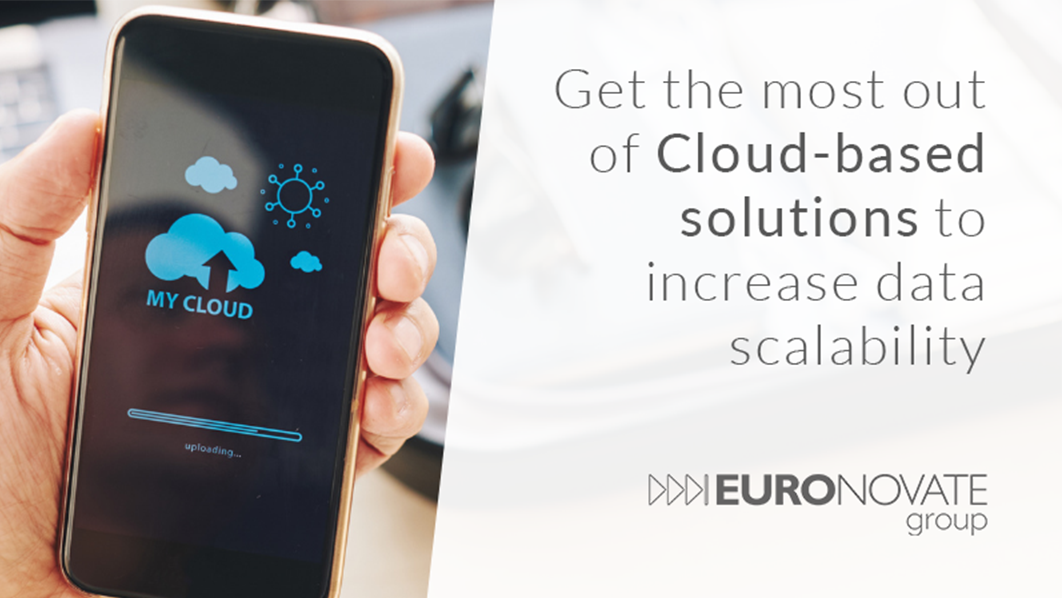About Cloud Computing…
Nowadays, cloud-based solutions represent an essential element for businesses, especially in the digital age where paper documents, information and data are in the process of digital transformation.
Before introducing the topic of cloud-based solutions, it is necessary to take a step back and define what a cloud is. The term “cloud” derives from cloud computing, in other words it refers to the delivery of services via the Internet, including tools and applications such as servers, data storage, databases, networks, software, analytics and intelligence to promote innovation, resources flexibility, processes automation and increase of economies of scale.
In general, cloud computing plays an essential role for people and companies for several reasons: cost savings, resource optimisation, increased productivity, speed, efficiency, high performance, and strong security.
Cloud computing can be public, private or hybrid:
- Public Cloud: refers to IT services and infrastructures that a third-party provider manages, allowing access and sharing of data to everyone just by using the public Internet. It is fast, easy with high scalability.
- Private Cloud: provides services to a specific and selected number of users or to a private internal network. It guarantees more security, flexibility, high performance, reliability, regulatory compliance, and it requires maintenance.
- Hybrid Cloud: A combination of both public and private cloud.
What is a cloud based solution?
A cloud-based solution refers to applications, services or resources made available to users on-demand over the Internet by the servers of a cloud computing provider.
It is intended to transfer information over the Internet and is easily accessible through a browser. Companies often request to increase capacity, improve business functionality, or add additional services on demand avoiding any infrastructure costs such as the purchase of servers and software licenses.
Furthermore, it is possible to make a distinction of Cloud-based systems into three models:
- Infrastructure as a Service (IaaS): It refers to an instant IT infrastructure, delivered and managed over the Internet that provides virtualised computing resources, without any need to be updated and maintained by the user. As this is a pay-as-you-go contract, customers have no fixed costs. They pay on consumption by avoiding purchasing software or servers. They access data in an on-demand outsourced service based on their needs.
- Platform as a Service (PaaS): This model is best suited for developers who want to work without dealing with hardware infrastructure, especially a third-party provider supplies developers with the hardware and software tools necessary for developing and implementing customised applications.
- Software as a service(SaaS): This model is the most complete type and does not require computer skills, downloads or installations by the end-user as it is entirely managed by the provider itself. To use a Saas-type cloud service from any device (computer, smartphone, tablet), you just need a browser and an Internet connection.
Why is it essential for companies?
The cloud-based solutions function is fundamental for companies both from an innovative perspective, embracing technology, and keeping up with the new reality. From a more practical and efficient point of view, as it increases capacity, functionality, and scalability of stored data, it reduces and simplifies maintenance and costs for the IT infrastructure with no need to ask internal staff to do it. Furthermore, a cloud-based solution can optimize corporate resources, ensure greater security, eliminate disaster recovery problems, have scalable data storage, and require fewer compliance issues.
We've mentioned some of the most common advantages above, but let's take a closer look at some of the biggest benefits your business can procure from a cloud-based solution:
Through a cloud-based solution, you can easily and quickly access data anywhere and from any device by storing the data on the internet. The information is available from a central web-based hub that allows users to log in over the internet with adequate credentials to guarantee access.
- Better consistency and coordination between users
If multiple people work on the same digital file, mistakes or misunderstandings are likely to occur. In this case, since the files hosted in the cloud exist in the same central location, the data is automatically synced across all devices, which means that people are using the most up-to-date version of the files.
- Remote available programs
Although business software is installed on corporate computers in the office, the advantage of cloud computing is that it allows users to access all types of files and applications from home as if they were in the office, removing all physical and geographical limitations.
Data loss often occurs due to various factors such as natural disasters, power surges, or hardware failures. Although most companies have adopted backup plans, it is recommended to prevent further unforeseen events. For example, if you use the cloud to store corporate data, there is greater security as necessary files are safe even in the event of a hardware failure.
Purchasing and maintaining server equipment takes time, experience, and additional costs. But suppose instead, you decide to store your company data to a cloud provider. In that case, you avoid both spending costs to build a custom server, and manage all the maintenance and management activities, for example in case of inactivity.
Euronovate Group cloud-based solution for Businesses
As a cloud-based solution, at Euronovate Group we support Organizations with nebulaSUITE, a product by Vintegris. It’s an all-in-one cloud-based solution that provides organisations with the complete infrastructure for digital certificates and qualified digital signatures through cloud-based services.
nebulaSUITE is a responsive solution fully adaptable to desktop and mobile devices which supplies the following services just in one unique place:
- vinCAsign: a public key infrastructure (PKI) platform and Certificate Authority;
- nebulaCERT: a solution for digital certificates management and issuance;
- nebulaDISCOVER: a SaaS Certificate Inventory Platform;
- nebulaSNE: a centralized management system for administrative telematic notifications;
- nebulaSIGN: a legally-compliant digital signature solution;
- nebulaACCESS: a multi-factor dynamic authentication for system access management.
If you are interested in our cloud-based solution, contact us for more information or to arrange a demo. If you want to stay up to date with our latest news and posts about Digital Transformation please follow us on Twitter and LinkedIn.




